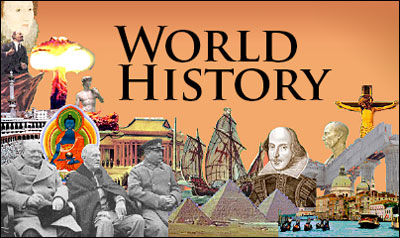COPE EVALUATIONS OF VOLUNTARY NATIONAL STANDARDS

 National Civics and Government Standards
National Civics and Government Standards
 National Economics Standards
National Economics Standards
 National Geography Standards
National Geography Standards
 National History Standards
National History Standards
 National Social Studies Standards
National Social Studies Standards
INTRODUCTION
Social Studies, as defined by the National Council for the Social Studies (NCSS), is the “integrated study of the social sciences and humanities to promote civic competence.” Social studies used to mean history – at least primarily. Now it encompasses a variety of disciplines, of which history is just one. Additional disciplines may include civics, government, political science, economics, geography, culture, sociology, psychology, anthropology, environmental science, and religious studies.
In elementary schools, social studies generally focus on the local community and family. In middle and high schools, the courses become more discipline-based and content-specific.
Common (traditional) themes in the past were Western civilization, Judeo-Christian religion, America’s Founders and heroes, patriotism, American exceptionalism, republican government, significant dates and events, personal responsibility, economic capitalism, physical geography, and people and places. Now the social studies have turned to darker themes, such as victimization, oppression, racism, sexism, bigotry, feminism, secularism, separation of church and state, multiculturalism, activist environmentalism, social justice, and wealth redistribution.
The newer themes are largely the result of the rise of Progressivism in the twentieth century. Progressivism was and is the most dominant political and social force in recent American history. Much of national American politics has been informed by Progressive principles. Nowhere is this more clear than in public education, including social studies.
One critical feature of Progressive thought is the belief that society is perfectible if supervised by an educated “elite” – experts who in turn are guided by scientific process and reason. These principles – the belief in expert knowledge, scientific progress, and finally the need to perfect society – are almost items of faith.
The Progressive perspective on history is that the bulk of humanity has been victimized (by ignorance, by poverty, by organized religion, by powerful people), and so there is virtue in acknowledging the circumstances of the underprivileged while at the same time proposing solutions for their improvement. Because Progressives see the underprivileged as the victims of rather than the authors of their misfortune, they tend to look at the history, culture, and values of these groups favorably. And to the same degree that the victim’s history and culture is celebrated, that of the oppressor is denigrated. Suggesting that those who held power in America’s past were abusive (towards women, other races, and immigrant groups) also promotes the legitimacy of Progressives to lead the country in the future. They believe they know what really happened and alone possess the knowledge to correct what went wrong.
The Progressive view of the past and the future is dangerous and prevalent in public education today. An example would be the Progressivist view of America’s founding and its future. Progressivists believe that society is moving ahead, or “progressing,” towards something new and (presumably) better. Thus, the principles in the Declaration of Independence and the U.S. Constitution need to “evolve” with time, undergoing continual revision in light of today’s society and current values. Society is “perfectible” if we will just follow the Progressives’ lead.
Such thinking often leads to views that are in conflict with traditional Judeo-Christian principles. For example, Progressivist thought may be seen in multiculturalism (all cultures are equally valid and merit equal respect) and values clarification (a person needs to decide for himself what values he will follow and keep). In contrast the Declaration of Independence – based largely on Biblical principles – proclaims: “We hold these truths to be self-evident, that all men are created equal, that they are endowed by their Creator with certain inalienable Rights, that among these are Life, Liberty, and the pursuit of Happiness” (emphases added). The Founders believed in absolute truth as set forth in the “Laws of Nature and Nature’s God.”
Progressivism historically has been associated with mainline and more “liberal” versions of Christianity. But some Progressives (e.g., John Dewey) have been associated with non-theistic belief systems like Atheism and Secular Humanism. For example, the Humanist Manifesto III (2003) expresses these beliefs:
It is COPE’s view that public education has gone too far in its adoption of curricula espousing Progressive principles and a tainted view of America’s past. We need to return to traditional themes, such as those portrayed in A Patriot’s History of the United States, a textbook by Larry Schweikart and Michael Allen. In their Introduction, the authors state: “The evidence is there for telling the great story of the American past honestly – with flaws, absolutely; with shortcomings, most definitely. But we think that an honest evaluation of the history of the United States must begin and end with the recognition that, compared to any other nation, America’s past is a bright and shining light. America was, and is, the city on the hill, the fountain of hope, the beacon of liberty.... We remain convinced that if the story of America’s past is told fairly, the result cannot be anything but a deepened patriotism, a sense of awe at the obstacles overcome, the passion invested, the blood and tears spilled, and the nation that was built.”

HISTORY ACCORDING TO ZINN
Revisionist history is the reinterpretation of traditional or orthodox views surrounding historical events, persons, or groups. To some extent revision of history is a part of the normal scholarly process of writing history. Historians are constantly studying the past, searching for new evidence and insights that may lead to a better understanding of the motives, circumstances, and unfolding of historical events and eras. Writing about the past is what historians do.
All of this is well and good if the historian uses an honest, unbiased approach to his research. Unfortunately, historians (like everyone else) have biases that are reflected in their writings. One of the foremost historians of this ilk is Howard Zinn. Zinn’s most influential work, A People’s History of the United States, was first published in 1980. Over the years, it has increased in popularity, selling well over two million copies. Thousands of high school and college students have been exposed to this text.
Zinn comes from a Leftist background, and his motivation is readily seen from his upbringing. He was born in 1922 of immigrants from Russia and Ukraine. He grew up in a working class Brooklyn household. He became attracted to Marxism/Communism in his teens and eventually joined the Communist Party. Zinn was in the air force in World War II, and the experience made him a lifelong pacifist. Zinn expressed his radical nature through his activism. During the 1960s he fought for civil rights and against the Vietnam War.
A People’s History is not about American exceptionalism and patriotic heroes. Instead, Zinn’s book is a story of brute domination in America going back to Christopher Columbus. Zinn’s founding fathers were self-serving elitists, and capitalist entrepreneurs were domineering villains. History for Zinn is a story of ordinary people who struggle to make ends meet in a society controlled by a tiny band of scheming rulers motivated by greed. Zinn’s main theme is social justice, featuring the oppression of minorities and women throughout America’s past and calling for political activism and the redistribution of wealth in the present.
THE C3 FRAMEWORK
In 2013, the National Council for the Social Studies (NCSS) released the College, Career, and Civic Life (C3) Framework for Social Studies State Standards. NCSS Executive Director Susan Griffin explained the reasoning behind the C3 Framework: “Many state standards in social studies are overwhelmed with lists of dates, places and names to memorize – information students quickly forget. The C3 Framework is a powerful tool that will assist states in establishing fewer, higher, and clearer standards for instruction.... The document emphasizes critical thinking, collaboration, and inquiry – skills that are critical to becoming active and engaged citizens.”
Critics were quick to jump on the new C3 Framework. Frederick Hess from the American Enterprise Institute (AEI) called it a “content-free framework.” Hess said that the NCSS writers “went out of their way to ensure that these ‘social studies standards’ make no mention of the U.S. Constitution – or other historical events, dates, or persons.” Dave Stuart, Jr. (Teaching the Core blog) says this was an intentional strategy to reduce controversy: “social studies content will be left up to individual states, and thus the politically charged hot potato of ‘what to teach’ is effectively passed on.”
The Fordham Institute’s Chester Finn called the C3 Framework “a damaging act for American education.” He says “it puts a further squeeze on actual content and reduces the odds that kids ... will emerge from school with anything like the knowledge they need to be effective, productive citizens....”
What is the real purpose of the C3 Framework? It appears to be three-fold as outlined by Tim Daly of NCSS. The first aim is to “enhance the rigor of the social studies disciplines.” It is difficult to imagine how this can be done, since there are no real learning objectives in the document. It has no social studies content.
The second aim is to “build critical thinking, problem solving, and participatory skills to become engaged citizens.” Thus the C3 Framework is mostly about how to use inquiry (hands-on learning, group activity, engagement, et al.) in social studies classes. The caution here is that students must learn the pertinent facts about history, geography, economics, and civics before they engage in intense analytical thinking and debate on issues. Some measure of inquiry is no doubt merited, especially in high school classes, but the instruction should largely focus on learning basic information about a discipline.
The third aim is to “align academic programs to the Common Core State Standards for English Language Arts and Literacy in History/Social Studies.” NCSS promotes interdisciplinary instruction and says that students will benefit from interaction with and integration of the arts and humanities. A key concept in Common Core is to blend different subjects together into a coherent, integrated system of instruction.
The topic of Common Core standards – which have been adopted by most states – brings up the question as to whether there will be a similar plan to entice states to sign up for the C3 Framework. Fortunately, there does not seem to be an organized effort to encourage states to adopt uniform social studies standards, but it would not be surprising to see such a move in the future.
Overall the C3 Framework emphasizes the power of human reason and scientific inquiry to address contemporary issues: “Now, more than ever, students need the intellectual power to recognize societal problems; ask good questions and develop robust investigations into them; consider possible solutions and consequences; separate evidence-based claims from parochial opinions; and communicate and act upon what they learn.” “Evidence-based claims” are those made using science and reason. In today’s culture the wisdom of Scripture and Judeo-Christian principles is often viewed as old-fashioned and obsolete. In modern society the “parochial” views of theistic parents and students are often ignored or portrayed in an unfavorable light. Students under the C3 Framework would be taught that cultures change, and therefore one’s religious precepts (and worldview) should evolve as well to more intellectually suitable beliefs.
THE APUSH FRAMEWORK
In early 2014 the College Board released its new AP United States History: Course and Exam Description, Including the Curriculum Framework. The document immediately came under fire from numerous pundits. Among the first, and most vocal, opponents were Jane Robbins (American Principles Project) and Larry Krieger (a retired AP history teacher). In a March, 2014, article these authors described the standards (abbreviated APUSH) as “a curricular coup that sets a number of dangerous precedents.... The new Framework inculcates a consistently negative view of the nation’s past.... The Framework ignores the United States’ founding principles and their influence in inspiring the spread of democracy....”
Later Mr. Krieger published a detailed analysis of the Framework. This is an excellent evaluation, and we will only list a few of Krieger’s main criticisms: lack of coverage of religious influences, sparse coverage of America’s founding documents and leaders, emphasis on ordinary people (minorities, disadvantaged persons, women), lack of military history, omission of many important historical figures and events, and lack of American exceptionalism and achievements.
The College Board’s initial response was to ignore the criticism, but after a while they decided it would be best to re-examine the document. A public review period was initiated and various historians were consulted.
Upon release of the 2015 edition, the College Board issued this description: “Every statement in the 2015 edition has been examined with great care based on the historical record and the principled feedback the College Board received. The result is a clearer and more balanced approach to the teaching of American history that remains faithful to the requirements that colleges and universities set for academic credit.”
Indeed, the new version seems to have addressed the concerns of many of the critics. The revision discusses American exceptionalism and national identity, gives more coverage to the U.S. role in world history (including wars), contains more material on America’s founding documents and leaders, considers American ideals (liberty, citizenship, self-government), and places emphasis on free enterprise, entrepreneurship, and innovation. The College Board’s reversal shows that public pressure can make a difference!
NATIONAL STANDARDS IN THE SOCIAL STUDIES
Voluntary national standards have been published in several different disciplines. These are reviewed at the links listed below. Note that our analyses primarily focus on how well the standards reflect COPE’s mission, which is to promote objectivity and neutrality in public school curricula that address religious questions and issues. Many topics in the social studies involve religious questions and issues. Our analyses point out instances where topics involving religion, morality, ethics, and American ideals are accurately – or inaccurately – portrayed in the standards. We suggest areas in which improvements are merited.
National Civics and Government Standards
These standards provide a lucid and thorough introduction to the principles of American civics and government. The emphasis, as it should be, is on the workings of the U.S. system of constitutional democracy and the responsibilities of citizenship. One general criticism we have is that the standards downplay or miss religious connections at numerous points. Judeo-Christian values have played a key role in America’s founding and heritage, and that connection should be explored more explicitly throughout the standards.
National Economics Standards
These standards do a fine job of covering basic practical economic principles, and the writing is clear and succinct. The standards properly emphasize free market principles (capitalism) in every phase. The win-win nature of voluntary exchange and the creation of wealth are clearly explained. The moral and ethical aspects of a market economy are barely considered, however. Capitalism is consistent with Judeo-Christian values, and this should be explained in the standards.
National Geography Standards
These standards provide good coverage of physical geography (natural features of the Earth) and human geography (mankind’s management of the Earth). Another strong emphasis, however, is environmental geography (interactions of man with the environment). A major objective of the standards seems to be to develop impressionable students into environmental activists, thereby promoting a political agenda that includes globalization, green energy, and sustainability. In pursuing this course, the standards fail to maintain neutrality and objectivity.
National History Standards
The standards give a generally accurate and objective account of American and world history. The major events, people, and turning points in history are covered. To be sure the standards follow the modern trend of increased emphasis on the lives of “ordinary” persons, including minority and disadvantaged people groups. This coverage at times seems too extensive. Both the accomplishments and the shortcomings of our U.S. heritage and Western civilization are enumerated, and overall the result is a generally positive picture of America’s past.
National Social Studies Standards
These standards are designed to provide a “framework” for state and local social studies standards. As such these standards are general and broad in nature, in contrast to the other standards we have reviewed in individual disciplines – which are very content specific. Since the standards are very general, it is difficult to discern any preferences and biases held by the authors. Nevertheless, we detect hints of multiculturalism, relativism, and globalism in the standards that might reflect a biased viewpoint. Also, the coverage of historical and religious influences is very much inadequate.
RECOMMENDATIONS FOR ADDITIONAL READING
Michael Kazin, Howard Zinn’s History Lessons
Sam Wineburg, Undue Certainty: Where Howard Zinn’s A People’s History Falls Short, American Educator, Winter 2012-2013.
David Greenberg, Agit-Proof: Howard Zinn’s Influential Mutilations of American History, New Republic, March 19, 2013.
David J. Bobb, Howard Zinn and the Art of Anti-Americanism, Wall Street Journal, August 12, 2013.
Frederick M. Hess, A content-free framework for K-12 social studies standards, American Enterprise Institute, September 18, 2013.
Dave Stuart, Jr., What’s the C3 Framework, and How does it Affect Your Social Studies Class? Teaching the Core, November 28, 2012.
Chester E. Finn, Jr., Social studies and poison gas, Fordham Institute Flypaper, September 18, 2013.
Tim Daly, College, Career, and Civic Life (C3) Framework for Social Studies State Standards, National Council for the Social Studies, September 11, 2013.
Jane Robbins and Larry Krieger, New Advanced Placement Framework Distorts America’s History, Heartlander Magazine, March 26, 2014.
Larry Krieger, Analysis of the College Board AP U.S. History Framework, Heartland Institute, March 25, 2014.
Colleen Flaherty, Revisiting History, Inside Higher Ed, July 31, 2015.
Catherine Gewertz, College Board Releases Revised AP U.S. History Framework, Education Week, August 8, 2015.
Zoe Schlanger, Revised AP History Standards Will Emphasize American Exceptionalism, Newsweek, July 29, 2015.
ACKNOWLEDGEMENT
COPE greatly appreciates input from the following reviewers on these evaluations: Harlan Day, John Herndon, Bryce Horwell, and David Legates.
 National Civics and Government Standards
National Civics and Government Standards
 National Economics Standards
National Economics Standards
 National Geography Standards
National Geography Standards
 National History Standards
National History Standards
 National Social Studies Standards
National Social Studies Standards

